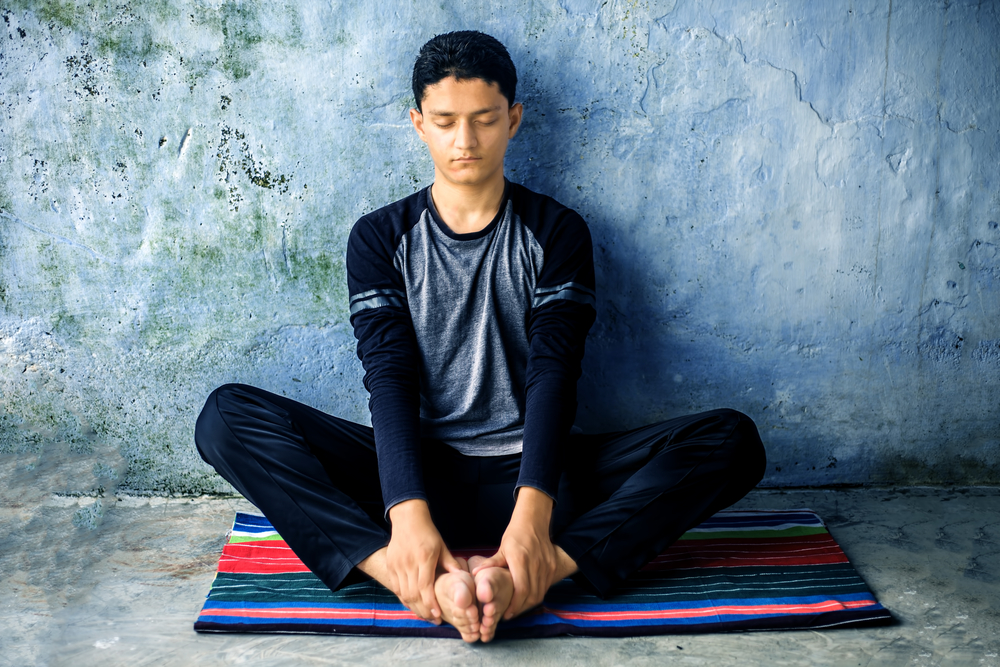
Bouncing Back: How to Build Resiliency Skills
By Paige Schildkamp, BA, MPH – Health Educator
This year, the Poe Center presented the our first sessions of the Youth Empowerment through Action and Resiliency for Generation Z (YEAR Z) Program Series. This program series covers topics from Poe’s Family Life, Substance Use Prevention, and MindWell Mental Health topic areas, coupled with an introduction to resilience concepts and resiliency-skills practice.
We’ve said it ourselves and heard it over and over. If there was ever a time that tested our ability to be resilient, this past year was it. Dealing with the difficulties, complications, and sadness brought on by the COVID-19 pandemic has caused stress and hardships for many people worldwide. Young people have not been exempt from this suffering as many continue to experience social isolation and loss. With that in mind, the resiliency skills discussed and practiced in Poe’s YEAR Z series are more important now than ever. These are skills that can and should be practiced every year – all year.

Parents are often the most effective instructors for resiliency skills. You are your child’s biggest role model. The more resilient and self-regulated you are, the better you’ll be able to help the youth in your life find that same resiliency for themselves.
Here are a few key resiliency skills that you and your youth can practice together. Some of these you may already be doing, but haven’t thought about them in this way. Some may look familiar, but be called something a different. Some may be totally new to you. Ultimately, everyone is different and what works for you may not work for your youth (and vice versa). Trying these skills and practicing together, until you find and improve on your favorites, is important to developing life-long habits.
- Connection: Try to set aside a little time every day, even a few minutes, to check in with each other. This helps creates opportunities for youth to come to you when they need to without it having to be awkward or unordinary. Connection with a trusted adult (or a close friend, if you’re the adult) is a central tenet in successful resiliency.
- Resource: Find a positive memory that makes you feel good. Use that memory as a mental “escape” when facing a difficult decision or stressful situation. Use your five senses to really sink into that memory’s place or time: Who was there with you? What did you see, feel smell, and hear? What are the feelings you had during that memory? Try out this video to get you started.
- Reset: No matter how prepared you are, there will be times when you get knocked out of your “resilient zone.” That’s ok! Resiliency skills help you “bounce back” and manage your thoughts and feelings so you can feel calmer and focused. Try these “reset” strategies until you find a few that work well for you.
 Press your hands or back against a wall or other hard surface.
Press your hands or back against a wall or other hard surface.- Count backwards from 20.
- Name six colors that you can see.
- Use tempo breathing. Try this box-five breathing video.
- Close your eyes and notice the sounds around you.
- Walk around and focus on your feet as they touch the ground.
- Rub your hands together and focus on the way it feels.
- Be Proactive: If you know a certain event or feeling is likely to cause you stress, make a resiliency plan ahead of time: Who can you get in touch with for support? Is there a way to take a break from the situation? What reset skills work best for you? Simply having a plan may be its own source of comfort. Things may not go according to that plan, but you’ll be better equipped to handle stress that does arise. This mini-lesson from the Poe Center explains how certain feelings can cause you to over-react to situations causing them to become stressful and how to manage those moments.
- Take Breaks: When you’re busy and feeling overwhelmed, this may seem impossible. But taking a break from the stressful activity can really help. Try taking 20 minutes to power nap or walk, listen to some music, stretch, call a friend, meditate, watch a short tv show, or anything else that can help your mind and body a rest.
- Practice: Practice these skills on your own and together with your youth. Just like any other skill, these take time and effort to learn. You may already be doing some version of these strategies and only need to fine-tune them. Or you may find something new that you love and can add to your resiliency toolbox.
Follow us on Instagram @Poe_Center for more resiliency tips and ideas from our partner, @WeThinkTwice.
